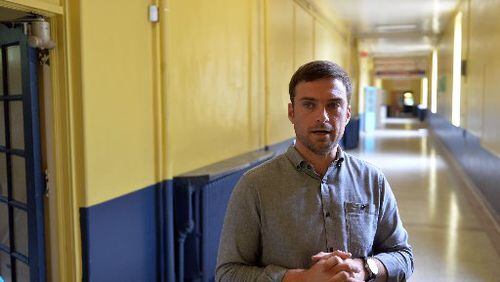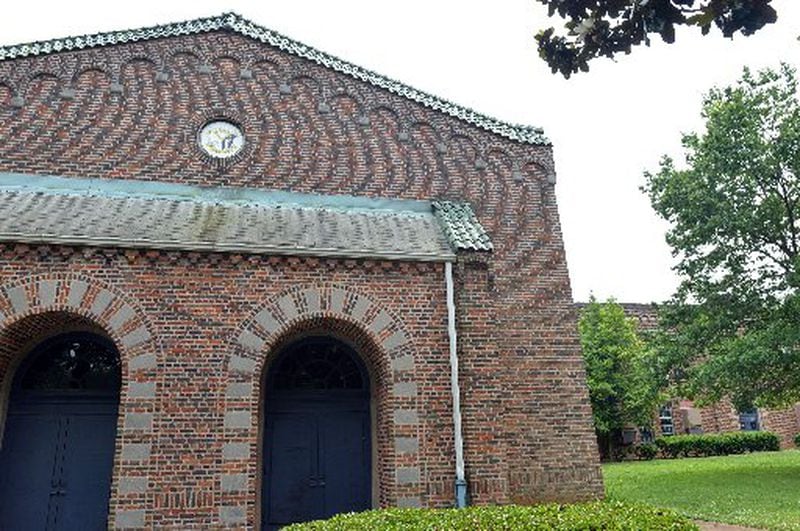WonderRoot, the decade-old Atlanta grass-roots arts nonprofit with a strong social change mission, is about to get bigger. A lot bigger.
The Atlanta Public Schools board on Monday night approved an agreement with the community arts center, which will take over a 54,000-square-foot former schoolhouse across the street at 1043 Memorial Drive. It has occupied a converted Reynoldstown house for seven years and outgrown it.
Opened as John F. Faith Elementary School in 1922 and renamed C.D. Hubert Elementary in 1963, the red-brick building most recently was home to the Tech High public charter school, which closed in 2012.
Credit: hpousner
Credit: hpousner
WonderRoot will turn the classrooms into 40 to 60 artist studios as part of a renovation for which it plans to launch a $2.8 million capital campaign. The Atlanta office of the architecture and design firm Perkins+Will has been working on the initial renovation plan.
Under the 20-year agreement with Atlanta Public Schools, WonderRoot will expand its Open Access Studio Program (which allows members access to a darkroom, pottery studio, digital media lab and other arts production facilities), gallery and education space. WonderRoot also will add a performing arts venue, cafe and distinct spaces for community events and meetings.
The biggest change will be the addition of individual artist studios. WonderRoot says it already has signed letters of intent for roughly 40 percent of the converted classrooms, all of which feature plaster-covered brick interior walls, high ceilings and tall banks of windows.
The studio spaces are expected to fund the operation of the entire campus, including a full-time arts center staff that is anticipated to double to 16.
WonderRoot co-founder and executive director Chris Appleton said two years of intense planning predated Monday’s vote. A five-year strategic plan, with arts group staff and board projecting as far out as two to three decades, calls for the group to broaden its reach and to mature into a midsize organization.
While focused on serving the immediate Reynoldstown and East Atlanta community, this summer, in a suggestion of increased outreach to come, it also has conducted projects in West End, south Atlanta, Buckhead and Cobb County.
“We think this is a great, great opportunity for us to really push WonderRoot’s mission of art and social change,” Appleton said. “The scope, scale and visibility of this project gives us the opportunity to advance the narrative and advance the work.”
About the Author







